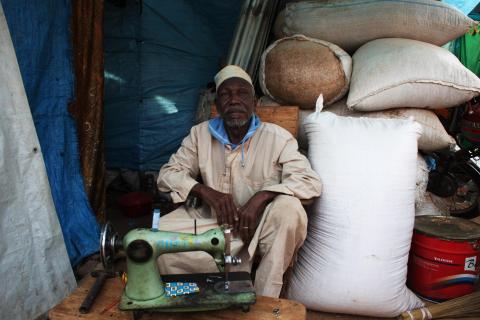Advertisement
Thousands Block Central African Republic Flights In Plea For Help
BANGUI (Reuters) - Thousands of people caught up in fighting in Central African Republic blocked the runway of its international airport on Tuesday, demanding more aid and the resignation of the president.
Families and other refugees chanted anti-government slogans near a makeshift camp where they have taken shelter since clashes erupted between mostly Muslim Seleka fighters and Christian militias early in December.
Many had arrived in the morning, still loaded with luggage, fleeing a second night of heavy shelling in the capital Bangui.
"We are going to stop the takeoff and landing of planes to draw more attention from the international community," said camp resident Rene Kaimba.
An Air France flight was cancelled on Tuesday while aid and U.N. flights were also affected, said aid workers. French troops, sent in to try and control the violence in their former colony, surrounded the crowd.
Some called for the country's interim President Michel Djotodia to step down. He seized power in March alongside Seleka, a loose coalition of rebel forces.
Central African Republic remains one of Africa's poorest states for all its mineral resources. It has seen five coups and several rebellions since independence from France in 1960.
"The Central Africans have suffered too much and been here almost a month without a solution," said M. Igor Kamdom, another displaced person at the camp.
"That's why we invaded the runway, so that the President Djotodia resigns."
RISKS TO POPULATION
French and African troops have struggled to stop the violence that has killed more than 1,000 people this month after Christians, who have long complained of abuses by Seleka forces, launched reprisal attacks.
Humanitarian workers say that ongoing violence is making it difficult to protect the more than 800,000 that have fled their homes across the country.
Milan-based aid group Emergency said a children's clinic had run out of blood and appealed for donations.
"Doctors are struggling to treat people with serious wounds, or children with anemia - a consequence of malaria," Ombretta Pasotti, Medical Coordinator at Emergency's Paediatric Centre in Bangui, told the Thomson Reuters Foundation.
The U.N.'s World Food Programme said it was scaling up deliveries to up to 1.25 million people.
International Rescue Committee country director Sarah Terlouw said water shortages and a lack of toilet facilities in camps had increased the risk of disease.
"At one camp we had just one water point for 12,000 people. The people are very vulnerable to outbreaks of cholera and typhoid," she told Reuters on Tuesday.
(Additional reporting by Misha Hussain; Writing by Emma Farge; Editing by Andrew Heavens)



















Add new comment